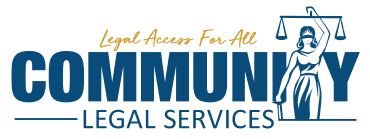Navigating the complexities of legal issues can be daunting, especially when faced with the prospect of hefty attorney fees. However, accessing legal representation is a crucial right for individuals across various socio-economic backgrounds. Fortunately, numerous options exist for those seeking free or low-cost legal assistance in the United States. From pro bono services to sliding scale fees, understanding the available resources is key.
This article aims to guide individuals in finding affordable legal representation within their state, exploring the diverse avenues and programs designed to make legal services more accessible to everyone.
Finding Affordable Legal Representation: A Guide to Free or Low-Cost Attorneys in Your State
When facing a legal issue, having the right attorney can make a significant difference in the outcome of your case. However, the cost of hiring a lawyer can be prohibitively expensive for many individuals.
Fortunately, there are options available for those seeking free or low-cost legal representation.
Understanding Eligibility for Free Legal Aid
To qualify for free legal aid, individuals typically must meet certain income guidelines, which vary by organization and location. These services are usually reserved for low-income individuals, seniors, and victims of domestic violence or other forms of abuse. The eligibility criteria often depend on the specific programs available in your state and the type of legal issue you’re facing.
Resources for Locating Low-Cost Attorneys
Several resources can help you find a low-cost attorney. Your state’s bar association often has a lawyer referral service that can connect you with attorneys who offer affordable rates or free initial consultations. Additionally, legal aid organizations and non-profit law firms provide legal services at no cost or at a reduced rate to eligible individuals. Online directories can also be a valuable tool in your search.
Preparing for Your Search
Before starting your search for a free or low-cost attorney, it’s essential to have a clear understanding of your legal needs and the type of lawyer you’re looking for. Make a list of your legal issues and any relevant details about your case. This preparation will help you make the most of your consultations and ensure that you’re matched with an attorney who has the necessary expertise.
| Resource | Description | Potential Benefits |
|---|---|---|
| State Bar Association | Provides lawyer referral services | Connects you with qualified attorneys at affordable rates |
| Legal Aid Organizations | Offers free legal services to eligible individuals | Free legal representation for those who qualify |
| Non-Profit Law Firms | Provides legal services at reduced rates or no cost | Low-cost legal representation for specific cases or populations |
How can I get a lawyer when I have no money?

 The Best Affordable Online Colleges You Can Enroll in This Year
The Best Affordable Online Colleges You Can Enroll in This YearIf you’re facing a legal issue and can’t afford a lawyer, there are several options you can consider. The first step is to understand that having no money doesn’t mean you’ll be left without legal representation. Many organizations and services are designed to provide legal assistance to those who cannot afford it.
Free Legal Aid Services
Free legal aid services are available in many countries, providing legal representation to low-income individuals. These services are often funded by the government or non-profit organizations. To qualify, you’ll typically need to meet certain income eligibility criteria.
- Search online for ‘free legal aid services’ in your area to find organizations that offer such assistance.
- Contact local non-profit organizations that focus on legal issues to inquire about their services and eligibility criteria.
- Visit your local courthouse or legal aid office to ask about available resources and how to apply.
Pro Bono Lawyers
Pro bono lawyers offer free legal services to those who cannot afford to pay. Many law firms have pro bono programs, and some lawyers volunteer their time through local bar associations or non-profit organizations. To find a pro bono lawyer, you can start by contacting local bar associations or legal aid organizations.
- Look for law firms in your area that have pro bono programs and contact them to inquire about their services.
- Reach out to local bar associations to ask about pro bono lawyers and how to get in touch with them.
- Check with non-profit organizations that provide legal services to see if they have pro bono lawyers available.
Legal Clinics and Hotlines
Legal clinics and hotlines are another resource for those who need legal help but can’t afford a lawyer. These services often provide free or low-cost advice and may be staffed by lawyers or law students. You can find legal clinics at law schools or community organizations, and hotlines are usually available by phone or online.
- Search for legal clinics in your area, which are often hosted by law schools or community centers.
- Look for legal hotlines that offer advice on specific legal issues, such as tenant rights or employment law.
- Check online for virtual legal clinics or hotlines that can provide assistance remotely.
What is it called when you cannot afford an attorney?

When an individual is unable to afford the services of an attorney, it is commonly referred to as being indigent or having limited financial means. This situation often arises when someone is facing a legal issue but lacks the financial resources to hire a lawyer. In many jurisdictions, there are provisions in place to ensure that individuals in such circumstances have access to legal representation.
Provisions for Indigent Defendants
In many countries, including the United States, there are laws and programs designed to provide legal representation to those who cannot afford it. For instance, in the U.S., the right to an attorney is guaranteed by the Sixth Amendment to the Constitution for criminal cases. When someone cannot afford a lawyer, they may be assigned a public defender or a private attorney appointed by the court.
Some key aspects of these provisions include:
- Public defenders are government-employed attorneys who specialize in representing indigent defendants.
- Courts may appoint private attorneys to represent indigent defendants in cases where a public defender is not available or has a conflict of interest.
- Legal aid organizations may also provide free or low-cost legal services to those in need.
Eligibility for Free or Low-Cost Legal Services
To qualify for free or low-cost legal services, individuals typically must meet certain income guidelines or other eligibility criteria. The specific requirements can vary depending on the jurisdiction, the type of case, and the organization providing the services.
Some factors that may be considered when determining eligibility include:
 How to File Your U.S. Taxes from Home Without Hiring an Accountant
How to File Your U.S. Taxes from Home Without Hiring an Accountant- Income level: Applicants must have an income below a certain threshold, which is often tied to the federal poverty guidelines.
- Assets: Some programs may consider an applicant’s assets, such as savings or property, when determining eligibility.
- Type of case: Eligibility may be limited to certain types of cases, such as criminal defense or family law matters.
Access to Justice Initiatives
In addition to providing legal representation to indigent defendants, many jurisdictions have initiatives aimed at improving access to justice for low-income individuals and families. These initiatives may include legal aid clinics, pro bono programs, and self-help resources.
Some examples of access to justice initiatives include:
- Legal aid clinics, which provide free or low-cost legal services to those in need.
- Pro bono programs, which encourage private attorneys to donate their time and expertise to help low-income individuals.
- Online resources and self-help materials, which can help individuals navigate the court system and access legal information.
What are free attorney services called?

Free attorney services are typically referred to as pro bono or legal aid services. These services are provided by attorneys who volunteer their time or are employed by organizations that offer free legal assistance to individuals who cannot afford to pay for an attorney.
Types of Free Attorney Services
Free attorney services can be categorized into different types based on the nature of the service and the organization providing it.
Some common types include:
- Pro bono services, which are provided by private attorneys who volunteer their time to help low-income individuals or non-profit organizations.
- Legal aid services, which are provided by organizations that employ attorneys to offer free or low-cost legal assistance to eligible individuals.
- Public defender services, which are provided by government-employed attorneys to represent individuals who cannot afford to hire a private attorney in criminal cases.
Eligibility for Free Attorney Services
To be eligible for free attorney services, individuals typically need to meet certain income or asset requirements.
The eligibility criteria vary depending on the organization providing the service and the type of case.
Some common factors that determine eligibility include:
- Income level, with most organizations having a maximum income threshold.
- Type of case, with some organizations specializing in specific areas such as family law or housing law.
- Asset limits, with some organizations considering an individual’s assets in addition to their income.
Benefits of Free Attorney Services
Free attorney services provide numerous benefits to individuals who cannot afford to hire a private attorney.
These benefits include access to justice, improved outcomes in legal cases, and reduced stress and anxiety associated with navigating the legal system.
Some of the key advantages of free attorney services are:
- Access to experienced attorneys who can provide high-quality representation.
- Improved chances of achieving a favorable outcome in a legal case.
- Reduced financial burden, as individuals do not need to pay for attorney fees.
Frequently Asked Questions
What are the eligibility criteria for free or low-cost attorneys?
Eligibility criteria vary by state and organization, but generally, applicants must be low-income individuals or families, seniors, or have a specific need such as domestic violence or disability. Some organizations also provide free or low-cost legal services to specific groups like veterans or the homeless. Income limits and other requirements are usually in place to determine eligibility.
How do I find a free or low-cost attorney in my state?
You can start by searching online for ‘free or low-cost attorneys’ along with your state’s name. You can also check with local non-profit organizations, law schools, or bar associations that offer pro bono or reduced-fee services. Additionally, you can contact your state’s bar association or a lawyer referral service to get a list of attorneys who offer low-cost or free consultations.
This content may interest you! Top Free Accounting Apps for Freelancers and Small Businesses in the U.S.
Top Free Accounting Apps for Freelancers and Small Businesses in the U.S.Are there any online resources that can help me find a free or low-cost attorney?
Yes, there are several online resources available, such as LawHelp.org, which provides information on free or low-cost legal services by state. You can also check with the National Association of Consumer Advocates or the American Bar Association’s (ABA) Standing Committee on Pro Bono and Public Service for more information and resources.
Can I get free or low-cost legal representation if I’m not eligible for pro bono services?
Yes, some attorneys offer reduced-fee or sliding scale services based on your income. You can also consider hiring a law student or a recent graduate who may charge lower rates. Additionally, some law firms offer free or low-cost initial consultations, which can help you understand your options and determine the best course of action for your case.

